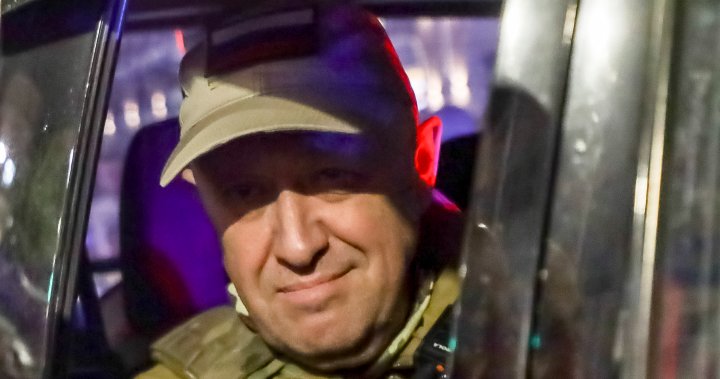The recent mutiny of Russia’s Wagner mercenary group over the weekend has exposed what NATO Secretary-General Jens Stoltenberg describes as a “weakness” in the leadership of Vladimir Putin. Stoltenberg believes that the rebellion by the powerful mercenary organization demonstrates the fragility of the Russian regime and the difficulty and danger of relying on mercenaries.
While NATO acknowledges the weakness in the Russian regime, Stoltenberg emphasizes that it is not the place of NATO to intervene in Russia’s internal matters. The conflict between Wagner Group leader Yevgeny Prigozhin and Russia’s top military brass in Ukraine sparked the mutiny, which saw fighters from the mercenary group temporarily seize a city in southern Russia before turning back. The Kremlin has made a deal for Prigozhin to move to Belarus and receive amnesty, but the Russian media reports that a criminal probe against him continues.
In a speech addressing the mutiny, Putin acknowledged that the organizers had deceived and manipulated the soldiers involved, leading to fratricide. He praised those within the Wagner Group who did not turn to bloodshed, describing them as Russian patriots. Putin offered the members of Wagner the choice to relocate to Belarus, sign a contract with the defense ministry, or return to their families.
The mutiny has raised concerns among international communities, as it poses a challenge to Putin’s authority in Russia. Governments, both friendly and hostile to Russia, are seeking answers about the potential implications of these events. Canadian Prime Minister Justin Trudeau emphasized the need to discuss the possible consequences for global stability and reaffirmed support for Ukraine and the rules-based order. However, Trudeau also cautioned against facilitating Russian propaganda and disinformation.
The details of the agreement that ended the mutiny have not been disclosed, and there is no public sign of Prigozhin. In an audio recording, Prigozhin defended the revolt as a response to an attack on his forces. Western officials, including U.S. President Joe Biden, have reiterated that they were not involved in the mutiny and are closely monitoring the situation. The U.S. has made it clear that it does not take a position on Russia’s leadership but remains steadfast in its policy of opposing Russian aggression towards its neighbors. British foreign minister James Cleverly described the mutiny as an unprecedented challenge to Putin’s authority, indicating cracks in Russian support for the war. EU foreign policy chief Josep Borrell believes that the revolt is revealing cracks in Russia’s political system and highlights the consequences of Putin’s creation of the Wagner Group.
Overall, the mutiny by the Wagner mercenary group has shed light on the weaknesses and fragility of the Russian regime. It has also raised concerns among international communities about the implications for global stability. While NATO and other countries are observing the situation closely, they remain cautious about involving themselves in Russia’s internal affairs.
Denial of responsibility! VigourTimes is an automatic aggregator of Global media. In each content, the hyperlink to the primary source is specified. All trademarks belong to their rightful owners, and all materials to their authors. For any complaint, please reach us at – [email protected]. We will take necessary action within 24 hours.


